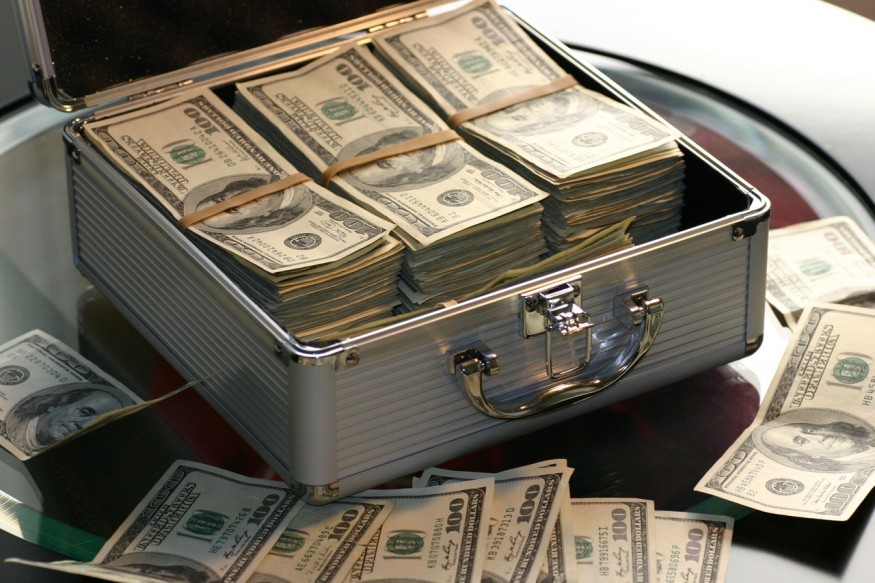How Mexican Drug Cartels Secretly Receive Millions From Chinese Criminals

The involvement of Chinese criminals in handling drug proceeds from Mexican drug cartels is nothing new.
Many recent court cases in the United States have revealed crucial information about how these schemes work involving Chinese money-laundering syndicates and Mexican drug cartels, and these have alarmed the authorities.
According to Insight Crime, the amount of money being laundered is huge. The news agency also shared that it seemed that behind it all were legitimate businessmen.
Imprisonment of Gan Xianbing
A U.S.-based Chinese citizen, identified as Gan Xianbing, was sentenced to 14 years of imprisonment in late April. He ran a scheme wherein the money from Mexican drug cartels were picked up in Chicago, transferred to bank accounts in China, and then sent back to Mexico undetected.
While flying from Hong Kong to Mexico during a layover, Gan handled $534,206 in drug money before being arrested at Los Angeles Airport in November 2018.
Since then, Gan became the most well-known Chinese money launderer connected to numerous dangerous drug cartels in Latin America, including the Sinaloa Cartel.
In the sentencing document of Gan, Assistant U.S. Attorneys Sean J.B. Franzblau and Richard M. Rothblatt noted that the defendant was part of a relatively small network of Chinese money brokers in Mexico who come to dominate international money laundering markets.
READ NEXT : San Diego Region Can Outlast Drought Conditions Possibly in the Next 1-2 Years, Water Authority Suggests
Other Chinese Criminals With Ties to Mexican Drug Cartels
After the arrest of Gan, two other key figures among Chinese money launderers emerged, namely Long Huanxin and Pan Haiping.
Both of them were believed to have been working with Gan to handle the drug money proceeds received in Chicago and ensure their laundering through Chinese bank accounts.
In February 2020, Long was arrested at Vancouver airport in Canada. He was then extradited to the U.S. on charges related to Gan. Haiping, on the other hand, was arrested in Mexico and currently waiting for extradition to the U.S.
Individually, the Chinese men presented themselves as legitimate businessmen and had no entanglements with the law. Gan owned a seafood business in Guadalajara, Mexico, while Long was the purchasing manager for his family's clock and toy business in Mexico, Reuters reported.
Last September, another individual was sentenced to five years in prison by a federal court in Virginia. He was identified as Wu Xueyong, who agreed to forfeit over $4.2 million in laundered drug proceeds from cocaine trafficking in the U.S.
In Gan's sentencing memorandum, the U.S. attorneys noted that many of these brokers are also engaged in a legitimate business. They said these Chinese criminals are using their businesses to cover for and do further money laundering activity with Mexican drug cartels.
In his defense, Gan noted that he is not a money launderer himself and that a certain Pan Haiping had duped him after allowing his Chinese bank account to be used for these transfers. The scheme allowed the laundering process to avoid scrutiny in China.
The financial regulators in the country put a limit on private individuals from handling more than $50,000 in foreign currency. Any transfers that surpass the limit must be granted a special dispensation, but there is no such limit on domestic transfers.
Meanwhile, one of Gan's associates, Singaporean Seok Pheng Lim, testified that she coordinated several weekly pick-ups from representatives of Mexican drug cartels.
She noted that large sums of money between $150,000 and $1 million were being transferred. Once the money was in the hands of the launderers, she said they get in touch with one among a network of Chinese-owned businesses in the U.S. and Mexico and asked them to transfer the money through Chinese banking apps.
It happened entirely via the Chinese domestic banking system, outside the scope of American authorities. One of the U.S. sources reportedly noted that it is the most sophisticated form of money laundering that's ever existed.
READ MORE : In Diplomatic Shift, Honduran Pres. Juan Orlando Hernandez Says He May Open a Trade Office in China
WATCH: Battlegrounds w/ H.R. McMaster | Panama: Economic Dev., Trade, Organized Crime, & Immigration Crises - From Hoover Institution
Subscribe to Latin Post!
Sign up for our free newsletter for the Latest coverage!

















